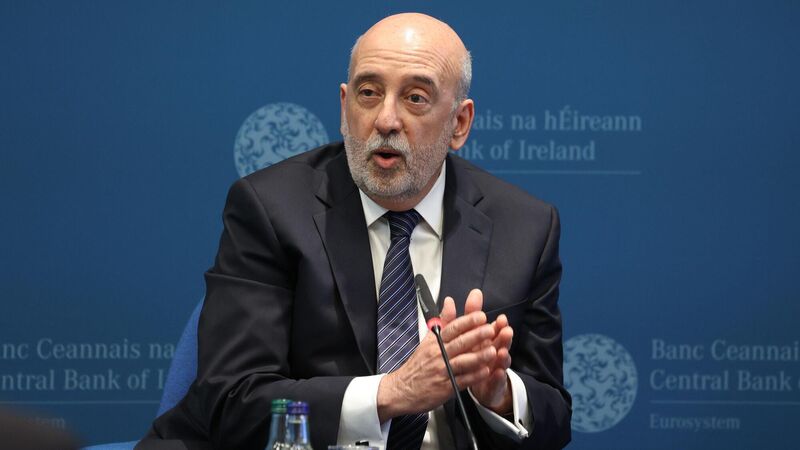Regulator wants ‘faster pass-through’ of interest rate increases

Central Bank governor Gabriel Makhlouf said the Central Bank does not have a role in setting commercial rates on bank products, 'but it is something we monitor closely'. Picture: Sam Boal/RollingNews.ie
Central Bank governor Gabriel Makhlouf said banks have been slow to implement rate hikes for borrowers and savers introduced by European banking regulators to drive down inflation.
Speaking to the Oireachtas finance committee, Mr Makhlouf said that he wants a “much faster pass-through” of the monetary policy decisions made by the European Central Bank (ECB) since July 2022.














